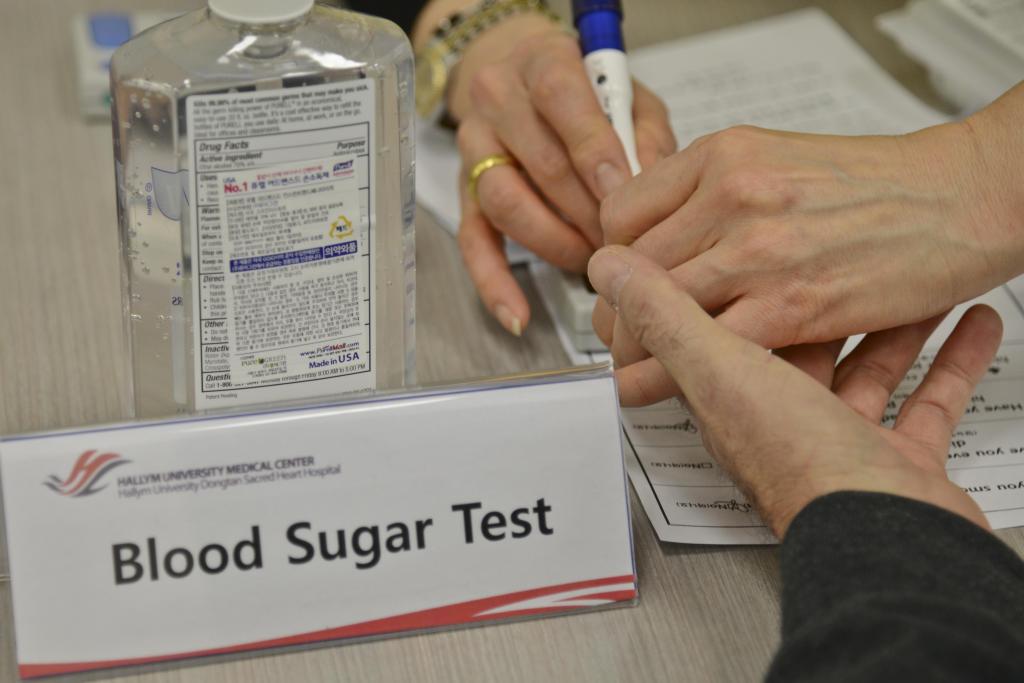Antioxidant alpha lipoic acid may help diabetics control blood sugar.

- Activating AMPK. This enzyme promotes the usage of glucose for energy, which can help reduce elevated blood sugar levels.
Overview
Alpha lipoic acid (ALA) is a fatty acid compound naturally present in the human body and many foods. ALA’s major role is to support the function of enzymes in the mitochondria—the structures which generate cellular energy. In addition to this, ALA also functions as the body’s “universal” antioxidant because of its unique ability to dissolve in both water and fat.
ALA is a popular supplement for health disorders linked to energy metabolism and oxidative stress, such as diabetes, obesity, dementia, chronic fatigue, and liver disorders. As part of its anti-diabetic effects, many people also use ALA to lower elevated blood sugar levels. Good sources of ALA include spinach, broccoli, potatoes, yeast, tomatoes, brussels sprouts, and kidney meat.
How Alpha Lipoic Acid Might Help With Blood Sugar
Researchers are not yet fully sure how ALA helps regulate blood sugar, but the most research-supported mechanism is AMPK activation.
Activating AMPK
AMP-activated protein kinase (AMPK) is an enzyme involved in controlling the body’s energy usage. One of its many effects is increased uptake of glucose (sugar) from the blood to provide energy to cells. In addition, AMPK also improves insulin sensitivity, which means your body can do a better job of controlling blood sugar levels in response to insulin. ALA has been demonstrated to activate AMPK in muscles and some other tissues, which can help reduce blood sugar levels. 2
Alpha Lipoic Acid Uses & Benefits for Blood Sugar
Alpha lipoic acid supplements are frequently used by people with type 2 diabetes to lower their blood sugar. But although many clinical studies show improvements in blood glucose levels and related measures such as insulin sensitivity, some studies report minor or no benefits. Because of this, clinicians are not yet recommending ALA for blood sugar management.
However, as one group of researchers concluded, the “lack of clear-cut benefits in some of the clinical trials to date does not disprove the benefits of ALA.” 3 As such, ALA is certainly worth trying for blood sugar control.
Read more: Guide to Blood Sugar Supplements

Research
Human Research
Human studies of alpha lipoic acid’s effects on blood sugar are inconclusive, with some studies demonstrating reduction of blood sugar levels and improvement of insulin sensitivity, and others showing minor benefits or no effect at all.
ALA (300 mg) appears to reduce blood sugar and insulin resistance in diabetics
This randomized, double-blind, placebo-controlled study evaluated the effects of ALA on diabetes. A total of 57 type 2 diabetics were given placebo or ALA (300 mg) daily for 8 weeks. ALA supplementation decreased fasting blood glucose (FBG) and postmeal blood glucose levels, as well as measures of insulin resistance.
- The researchers concluded that “This study supports the use of ALA as an antioxidant in the care of diabetic patients.” 5
ALA (600 mg) does not significantly improve insulin sensitivity in diabetics
This randomized, double-blind, placebo-controlled study examined the effects of ALA and vitamin E on insulin sensitivity in diabetes. Being sensitive to insulin helps maintain healthy blood sugar levels. A total of 102 type 2 diabetics were given ALA (600 mg), vitamin E, both, or placebo. The study participants did not experience a significant improvement of blood glucose or insulin sensitivity, although the researchers did note a slight improvement in the ALA group.
- The researchers concluded that “…LA and vitamin E supplementation alone or in combination did not affect the lipid profile or insulin sensitivity of DM2 patients.” 6
ALA (1200 mg) may help diabetics control blood sugar by improving insulin sensitivity
This randomized study looked at the effects of ALA on insulin in type 2 diabetes. Twelve diabetics were given ALA (600 mg twice daily) for 4 weeks. The supplementation improved markers of insulin sensitivity, which suggests that it can help control blood sugar in diabetics.
- The researchers concluded that “short-term oral alpha-lipoic acid treatment increases peripheral insulin sensitivity in patients with type 2 diabetes mellitus.” 7
ALA (1000 mg) appears to increase insulin sensitivity in diabetics
This placebo-controlled study examined whether ALA can improve insulin sensitivity. Nineteen type 2 diabetics were given a single dose of ALA (1000 mg) or placebo. ALA increased insulin-stimulated blood glucose disposal, meaning that ALA made insulin more effective at controlling blood sugar.
- The researchers concluded that “…ALA and its potential use as an antihyperglycemic agent require further investigation.” 8
ALA (300-1200 mg) may cause a slight reduction in blood sugar levels in diabetics
This randomized, double-blind, placebo-controlled study evaluated the effects of ALA on glucose levels in diabetes. A total of 38 type 2 diabetics were given placebo or different doses of ALA (300, 600, 900, or 1200 mg) daily for 6 months. Although the results showed small reductions in fasting blood sugar and HbA1c levels, these effects were not significant enough to conclusively support ALA’s effectiveness.
- The researchers concluded that ” Results from this study reflected the benefits of ALA in glucose status with slight efficiency…” 9
Dosage for Blood Sugar
- Successful research studies most commonly use 300-1200 mg dosages of alpha lipoic acid
- ALA supplements usually provide 250-600 mg dosages in capsule form
Available Forms
- Alpha lipoic acid comes in two forms – the natural R-alpha-lipoic acid (R-ALA) and the synthetic S-ALA. R-ALA is believed to be more potent, but most ALA supplements contain a 50/50% mixture of R-ALA and S-ALA unless otherwise specified.
- ALA can also be sold as 100% R-ALA, which is considered to be more potent, but has a higher price.
Supplements in Review Recommendation
- Alpha lipoic acid, 300-1200 mg for blood sugar.
Alpha lipoic acid may help lower blood sugar. It’s too early to recommend ALA for lowering blood sugar in diabetics because of mixed research findings. However, there are enough studies showing improvements in blood sugar to justify trying ALA to see if it works for you.
Successful studies use dosages of 300-1200 mg. We recommend starting out with 300 mg daily dosages of ALA, after which you can assess the effects and consider moving up to higher dosages.

Im taking ALA for two months now 600mg and my blood sugar reading went down fro 7 to 5 sometimes 4..8